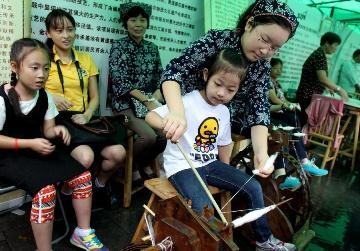Most schools have failed to implement the new qualitative assessment system for primary school pupils, despite announcement by authorities that they have completed the trials involving 160,000 first- and second-graders in the city, the Shanghai Daily reported.
The report, however, said that a poll conducted by the authorities in January, four months after the trials started, said that most of the schools that took part in the trial had failed to implement the new scheme.
According to the January poll, more than 80 percent of the parents of first- and second-grade pupils said that their children had been required to take the mid-term exams.
The report said that based on the scheme, children were awarded four grades (excellent, good, pass or improvement needed), different from the traditional points-based marking system.
"In the trials, the method was used to assess the performances of first- and second-year pupils in Chinese, mathematics and English, but it will now be adapted to suit more (all primary) students and a wider range of subjects," Zheng Fangxian, director of the elementary education office at the Shanghai Education Commission, was quoted as saying.
Zheng said that the main goal of the new assessment system is to reduce the pressure on young children and to ensure that teachers use continual assessment to measure the abilities of each pupil.
"The new method should allow teachers to build up a better understanding of the skills and needs of each individual pupil," Zheng added.
While Zheng expressed confidence on the system, Sun Zhong, deputy director of the education bureau of Zhabei District, said that many teachers are not skilled enough to determine the individual interests and study habits of each child.
"And without an objective scoring system, different schools and teachers will apply different standards," Sun said, adding that refinements must be made before the system can be implemented effectively.



























